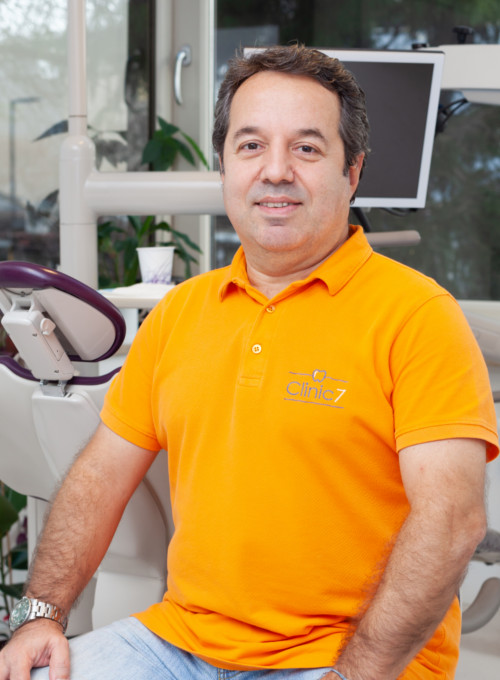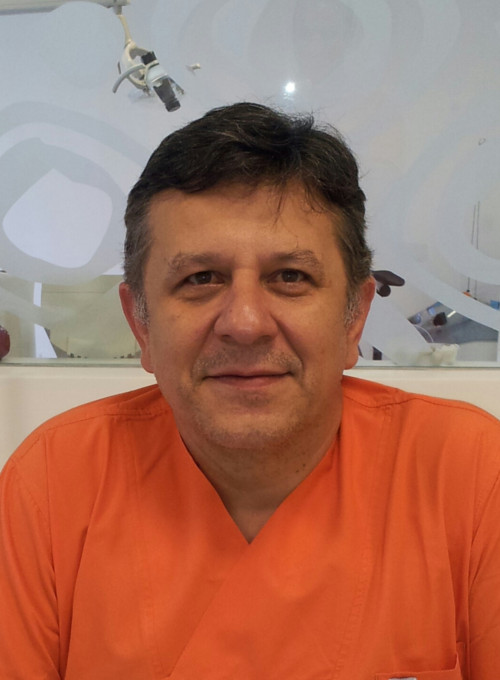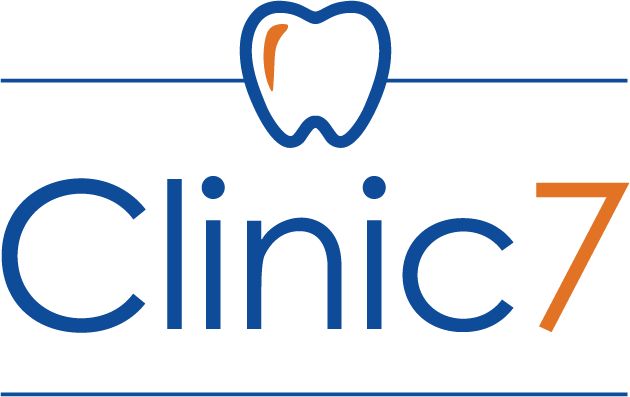Our clinic was established in 2012 with a team of experts who have clinical experience in many branches of dentistry. Over time, it has become a clinic where all the problems of a patient with mouth, teeth and jaw disorders can be solved under the same roof, without the need for another clinic or another specialist.
After going through clinical consultation, treatment protocols in line with the needs of our patients are presented to our patients in accordance with the longest-lasting, fastest and modern approaches. Our doctors and assistants, who have a high sense of empathy and a friendly approach, strive to create the ideal environment to make our patients comfortable. Our goal is based on the happiness of every patient who leaves our clinic.
"A patient smiling with happiness and health!" It is Clinic 7's sole mission.
The Team

Dr. Cem Ünlüçerçi
He was born in 1965. He completed his primary education at Şişli Terakki and his secondary and high school education at Saint-Michel French High School.
Continue...

Dr. Mehmet Kaan Soyseçkin
He was born in Antalya in 1969. He finished his primary education at Antalya Private Primary School. He completed his secondary and high school education at Antalya Anatolian High School.
Continue...

Dr. Doruk Düzenli
He was born in Istanbul in 1987. After completing his primary education in Tekirdağ, he completed his secondary and high school education at VKV Koç Private High School.
Continue...

Dr. Argir Liaje
He was born in 1979. He completed his primary education at Şişli 19 Mayıs Primary School and his secondary and high school education at Kurtuluş High School.
Continue...
























